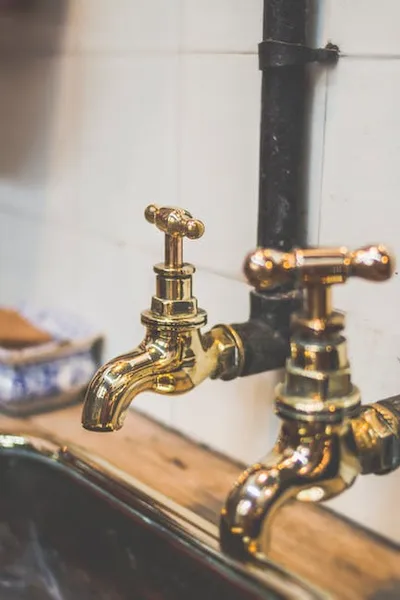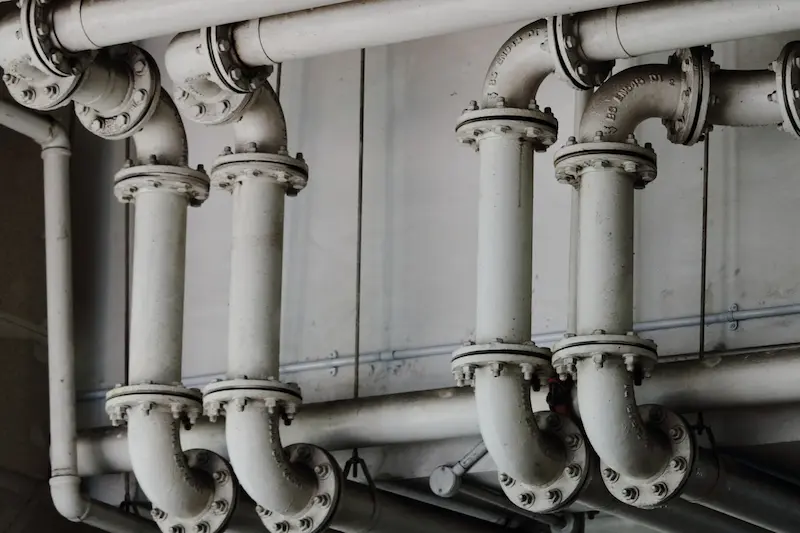Table of Contents
A well-functioning plumbing system is essential for any home, ensuring smooth water flow and efficient waste removal. However, plumbing needs regular care to maintain its performance and longevity. Extending its life saves on costly repairs and enhances your home’s comfort and safety. This guide explores practical steps to keep your plumbing in top condition for years.
Regular Maintenance Checks
Regular upkeep is essential for spotting and resolving potential problems before they develop into serious issues. Start by inspecting visible pipes for signs of corrosion, leaks, or damage. Look under sinks, around water heaters, and near any exposed plumbing fixtures. Tighten any loose connections and swap out worn washers or seals. During these inspections, you might come across components that need specialized attention. In such cases, consider a cast iron trenchless team as they offer expertise in handling older pipe materials without the need for extensive digging or disruption to your property. Scheduling yearly professional inspections can help uncover hidden issues not apparent during routine checks. Plumbers can use tools like cameras to inspect pipes, detecting blockages or weaknesses early. Regular maintenance prevents unexpected breakdowns and extends the lifespan of your plumbing system by keeping components in good condition.
Proper Use of Plumbing Fixtures
Proper use of plumbing fixtures is key to their longevity. Avoid flushing non-disposables like sanitary products, wipes, or paper towels to prevent blockages and damage. Run cold water when using garbage disposals to solidify grease, preventing pipe clogs. Also, monitor your water use. Excessive flow can strain pipes, leading to leaks or bursts. Installing low-flow fixtures can cut water usage without losing performance, reducing wear on your system. These simple habits enhance the durability and efficiency of your plumbing, ensuring it serves well for years.
Insulate Pipes to Prevent Freezing
In colder climates, frozen pipes are a common cause of plumbing damage during winter months. Insulating your pipes helps regulate temperature, minimizing the risk of freezing and potential bursts. Use foam pipe insulation sleeves or wrap pipes with heat tape in areas that are exposed to extreme temperatures, such as attics, basements, and crawl spaces. Pay attention to pipes near exterior walls or in unheated areas. Besides insulation, let a small trickle of water flow through faucets during extreme cold to prevent freezing.
Avoid Chemical Drain Cleaners

While chemical drain cleaners might offer a quick fix for clogged drains, their frequent use can lead to long-term damage to your plumbing system. These harsh chemicals can corrode pipes, weaken joints, and degrade seals, making your plumbing more susceptible to leaks and breaks over time. Instead of relying on chemicals, opt for mechanical methods to clear blockages, such as using a plunger or a plumber’s snake. Regularly cleaning drains with natural solutions like baking soda and vinegar can also help maintain clear pipes without the harmful effects of chemicals. If you encounter persistent clogs, consult a professional plumber who can diagnose and resolve the issue without compromising the integrity of your plumbing.
Monitor Water Pressure
Excessively high water pressure can strain pipes, fixtures, and appliances, leading to leaks, bursts, and reduced lifespan of these components. On the other hand, low water pressure can indicate underlying issues such as pipe blockages or leaks that need to be addressed. Use a pressure gauge to regularly check the water pressure in your home. The recommended range usually falls between 40 and 60 psi. If your water pressure is consistently outside this range, consider installing a pressure regulator to maintain it within safe limits. Moreover, addressing any pressure fluctuations promptly can prevent long-term damage to your plumbing, ensuring that water flows smoothly and efficiently throughout your home.
Install Water Softeners
Hard water, which contains high levels of minerals like calcium and magnesium, can cause significant buildup in your plumbing system. Over time, mineral deposits can accumulate in pipes, reducing water flow and increasing the strain on your plumbing fixtures and appliances. This buildup affects the efficiency of your plumbing and leads to clogs and corrosion. Installing a water softener can effectively reduce the hardness of your water, preventing mineral deposits from forming. Water softeners work by removing minerals from the water supply, ensuring that your pipes and fixtures remain free from harmful buildup. This extends the life of your plumbing system and improves the performance of appliances such as water heaters, dishwashers, and washing machines, making your home’s water usage more efficient and sustainable.
Address Leaks Promptly
Even minor leaks can lead to water wastage, increased utility bills, and damage to walls, floors, and foundations. Identifying and fixing leaks early can prevent these issues and save you from costly repairs down the line. Regularly inspect areas around sinks, toilets, and water heaters for signs of moisture, drips, or corrosion. If you spot any leaks, address them promptly to prevent further issues. Simple fixes like tightening connections or replacing worn-out washers can often resolve the issue. For more complex leaks, especially those hidden within walls or underground, seek professional assistance to ensure a thorough and effective repair.
Upgrade to Quality Materials
Investing in high-quality plumbing materials can significantly enhance the durability and performance of your plumbing system. Modern materials such as PEX (cross-linked polyethylene) and copper offer superior resistance to corrosion, high temperatures, and pressure variations compared to older materials like galvanized steel or cast iron. These materials are longer-lasting and easier to install and maintain, reducing the likelihood of leaks and other issues. When renovating or upgrading your plumbing, choose fixtures and pipes made from reputable materials to ensure compatibility and longevity. High-quality components often come with better warranties and support, providing peace of mind and added protection for your investment.
Extending the life of your plumbing system requires a combination of regular maintenance, mindful usage, and proactive measures to prevent damage. By conducting routine checks, using fixtures properly, insulating pipes, avoiding harmful chemicals, monitoring water pressure, installing water softeners, addressing leaks promptly, and upgrading to quality materials, you can ensure that your plumbing remains efficient and reliable for many years. Investing time and effort into maintaining your plumbing enhances the comfort and safety of your home and protects your financial investment by reducing the need for costly repairs and replacements. Embrace these practices to enjoy a smoothly functioning plumbing system that serves your household effectively and efficiently.
Want to explore something different? Elevate Your Project Efficiency: Essential Equipment for Heavy Lifting in Construction

